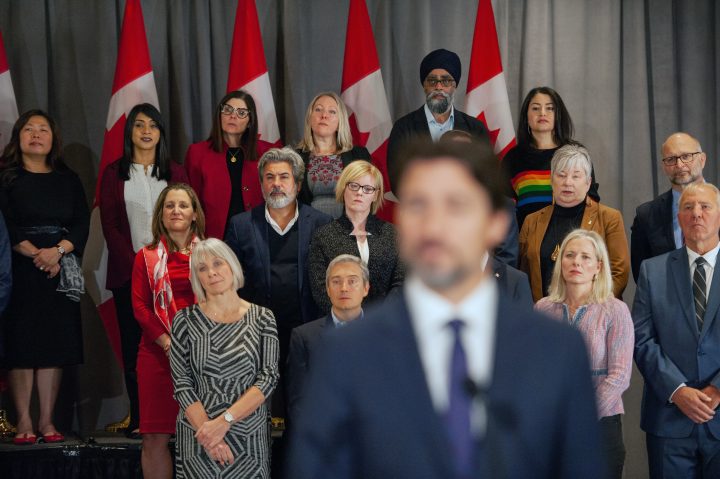Prime Minister Justin Trudeau has been warned that more than 200 senior jobs need filling across the federal government, including dozens in key leadership and oversight roles in different Crown corporations, commissions, agencies and embassies.

In a memo to Trudeau shortly after the Liberals won re-election last fall, government officials said there were 220 so-called governor-in-council appointments that needed to be made immediately and another 360 that are set to expire by the end of 2020.
The memo was released to The Canadian Press through the Access to Information Act.
The federal government has about 3,600 governor-in-council positions, including nearly 2,000 that are full-time jobs. They are, for all intents and purposes, appointed by either the prime minister or his cabinet.
Federal records show Trudeau’s cabinet has appointed or reappointed people to at least 16 such positions since the election, including renewing the terms of six Bank of Canada governors and the head of the Canadian Commercial Corporation. They have also appointed several ambassadors.
Several others have expired since the memo was written. The list of empty seats includes Canada’s ambassador to the U.S. and the auditor general.

Canada has been without an ambassador in Washington since David MacNaughton resigned last August. Meanwhile, Sylvain Ricard has been serving as interim auditor general since Michael Ferguson died of cancer in February 2019.
Officials specifically told Trudeau he needed to decide on a process for selecting a new auditor general as the government must consult every recognized party in the House of Commons and Senate and get both chambers to adopt a resolution approving the eventual appointment.
The auditor general’s office actually raised concerns in December about delays in key appointments, noting the government had failed to name new directors to the boards of more than a dozen Crown corporations.

Get breaking National news
Such boards are essential for providing oversight and direction to taxpayer-funded corporations, the auditor general wrote in a report tabled with Parliament, adding: “Delays in appointments affect the board’s ability to fulfil its important governance role.”
The reasons for the governor-in-council vacancies are not identified in the memo, though it does note that in 2016, the Liberal government expanded a merit-based selection process originally implemented in 2009 for leadership positions to include all such appointments.
The current appointment process is “transparent and merit-based, strives for gender parity and seeks to ensure that Indigenous Peoples and people of diverse backgrounds are properly represented in positions of leadership,” said Trudeau’s spokeswoman, Ann-Clara Vaillancourt.

The memo echoes that assertion, but does not indicate whether the change has been successful in meeting those goals. It does say the number of non-judicial appointments fell to 599 in 2018-19 from 784 in 2016-17. The number of judicial appointments increased to 191 from 137.
Penny Collenette, who was former prime minister Jean Chretien’s director of appointments for four years, said several factors may have contributed to the number of vacancies and expiring terms, including the election.
There is also the possibility of a logjam within the Prime Minister’s Office and the Privy Council Office that supports it, where the appointment process has been centralized for several years, she said.
“It’s not necessarily surprising, but it’s not ideal,” Collenette said of the vacancies. “Without these appointments, the machinery of government will not operate.”
The federal New Democrats blasted the government for the vacancies and expired terms.
“We’re talking about positions that exist to keep the government honest and deliver services, protect the rights, and ensure the safety of Canadians,” said NDP public services critic Matthew Green.







Comments
Want to discuss? Please read our Commenting Policy first.